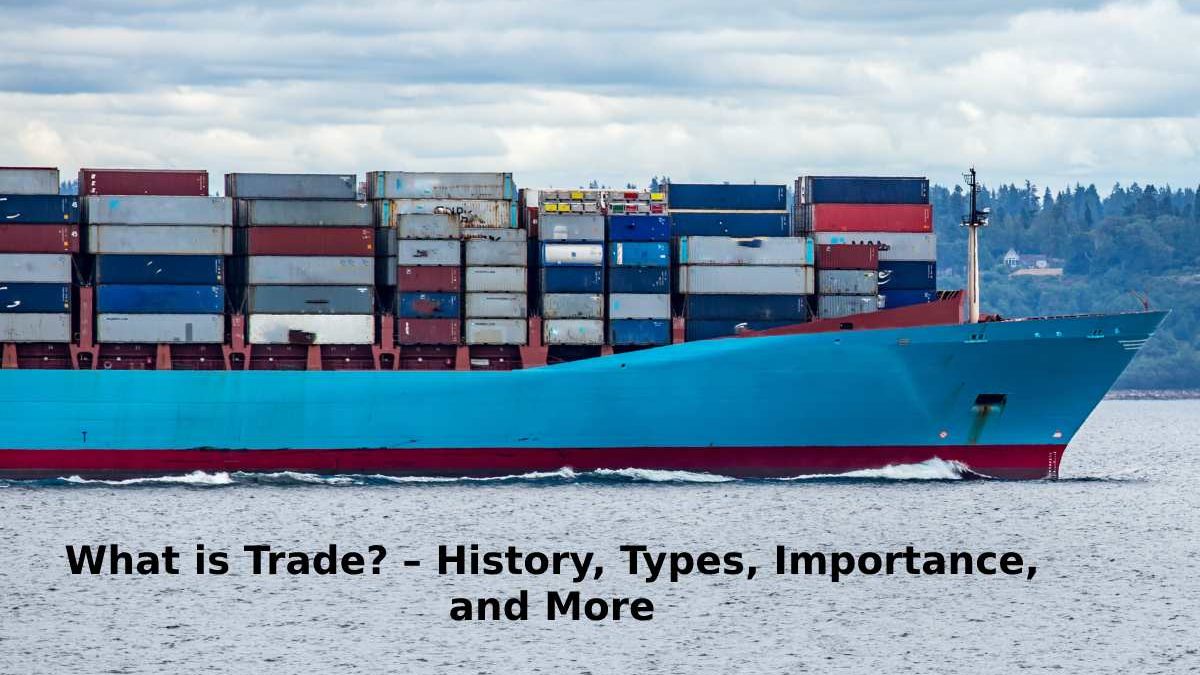Table of Contents
Introduction
Trade is one of the oldest and most fundamental human activities for establishing the first economies and spreading cultures. Commercial activity has been part of human beings’ primary and majority occupations throughout history, especially after the rise of the bourgeoisie to power after the Renaissance and the subsequent beginning of capitalism.
History of Trade
Trade is as old as civilization. Its first manifestations emerged during the Neolithic period and the emergence of agricultural and inactive societies. As planting maximized the food obtained and allowed its accumulation, the possibility of exchanging the surplus with other producers arose.
Thus, it was possible to retain a diverse diet and access other types of goods and services in which each person specialized as new forms of production, such as pottery, steel, and other activities, emerged.
Types of Trade
There are different ways of classifying commercial activity. In the first place, we must differentiate the possible types of trade based on the volume of merchandise and its modes of sale, as follows:
Wholesale Trade

wholesale is a type of purchase-sale of merchandise in which large volumes are handled at a reduced price, generally destined for resellers who will then proceed to retail trade, thus obtaining a profit.
Retail Commerce
Also called “retail”, it is, on the opposing side, the purchase and sale of merchandise on a small scale, generally made directly to the final consumer.
On the other hand, we can differentiate between the forms of trade based on the transport mechanism used to drive the merchandise from the producer to its consumers, thus speaking of land, sea, air or river trade. Commerce over the Internet is also known as e-commerce or electronic commerce.
Finally, we must distinguish between
- Domestic trade: It is carried out between people who belong to the same country and share the jurisdiction of the State.
- Foreign trade: It includes economic actors found in various countries.
Importance of Trade
Trade is a fundamental activity of humanity, primarily responsible for the dissemination of knowledge, technologies, cultures, languages and religions that, since ancient times, have thus enriched different human societies.
It has also been, along with manufacturing, one of the main economic deeds of human beings. As a result, we currently owe the most significant volume of financial transactions in the contemporary world.
Code of Trade
A commercial code is a systematized and unified set of rules of commercial law intended to regulate all forms of commercial exchange in a country and falls within its specific legal framework. This type of treaty dates back to the French Enlightenment and, in particular, to the legislative changes introduced by Napoleon Bonaparte.
Currently, the Commercial Codes, together with specific special laws, allow regulating commercial exchanges to ensure their implementation according to basic principles that respect the fundamental laws of each company.
Trading Systems
Throughout human history, there have been various systems of trade and prosperity. Each with implications and problems that spawned the next. Some of the most relevant are:
Mercantilism
It was economic thought that dominated Europe in the 17th and 18th centuries. It all started with the idea that the planet’s wealth was fixed and limited, so countries would have to compete for it, represented by quantities of precious metals such as gold and silver. This struggle led to governments trying to absorb each other, which led to significant wars between powers.
Colonialism
The direct result of mercantilism was the creation by the European powers of a worldwide network of colonies. These colonies aimed to provide the metropolis with the desired materials and raw materials. Which handled trade at a distance to always get more out of their territories.
Capitalism
Following the liberal theories of Adam Smith, mercantilism gave way to capitalism. Which as a system promoted the idea of marketing free of government regulation and interference in competition between those who produce supply and those who activate demand.
Why is Trade Important?
Trade is an integral part of human history. Some perspectives (like Marxism) understand this, along with production and other elements of economics, as the force that shapes societies.
Trade has enabled human development and the redistribution of goods. In this way, human groups can benefit from their efforts without constantly repeating the same actions in the same way.
Conclusion
In other words, trade is a social and economic movement involving the acquisition and transfer of goods. Anyone participating in the trade can buy the product for direct use, resale, or conversion.
Generally, this commercial transaction consists of delivering one thing in exchange for another of equal value. The medium of exchange in commerce is usually money.

